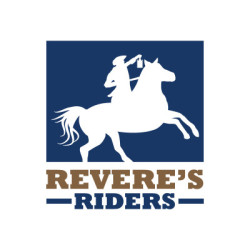Dave’s Corner: The Grand Experiment
Welcome back!
Before I go any further I would like to clear something up. It eats at me that we are constantly told we live in a democracy. We do not. The United States of America is a republic. Now a serious student of political science could expound on our form of government until we all fell asleep, but the important thing to know is that a democracy was despised by the founders, and for good reason. They thought a democracy just slightly better than being ruled by a king, and many thought it worse. Thomas Jefferson had no use for democracies. In fact, a quote attributed to him directly goes something like this:
A democracy is nothing more than mob rule, where 51 percent of the people may take away the rights of the other 49.
A republic was chosen over a democracy in order to preserve the individual rights of every citizen. Something we considered sacred, at one time.
Last week, I explained who we are. Today I would like to talk a bit on where the founders got their idea for this “Grand Experiment” we call America.
In the seventeenth and eighteenth centuries, there was much debate and philosophical thinking about human existence. Questions, like “Why are we here?” and “Who are we?” were getting serious, reasoned thought.
There is a good reason it was known as the Age of Enlightenment. Writers and thinkers like Descartes, Bacon, Newton, and Locke were widely read, and their ideas played a fundamental role in shaping the thinking of the colonists.
![]()
The idea of a natural law that gave every person certain rights, we called them inalienable rights, was accepted as a gift from a higher being. Those rights could not be trampled on by any earthly power, be it a King, a Parliament, or a sword. Do you see where I am going with this?
For generations, the Colonies had been the melting pot of the world, long before we were a country, and generations before we had the Statue of Liberty standing in New York Harbor. Lady Liberty was late to the game. People of all nations, races, and cultures flocked to the Colonies for a taste of freedom. Many willingly sold themselves into something called indentured servitude where they would sign a contract to work for another an agreed number of years, to buy their passage here. Think about that for a moment, would you agree to work for little or no pay and only the bare essentials of living for 5, 10, 15 years just to come to America? They did, by the boat load, and once a life of Freedom and Liberty were experienced, there was no going back.
The idea that every person had the natural right to pursue their dreams, build a better life based on their abilities, was shared by all. The topics of Freedom and Liberty were discussed privately and publicly over dining tables, fence rails, fires, and many flagons of adult beverage for years before the American Revolution. We liked our Freedom and Liberty, and we were not giving it up easily.
Speaking of revolutions, exactly what caused the American Revolution and how did it come about? That is a topic we begin next week.
